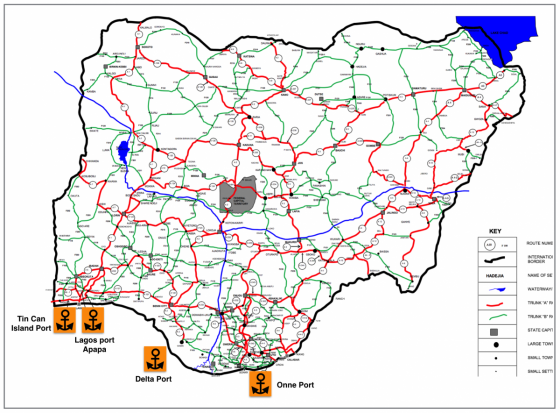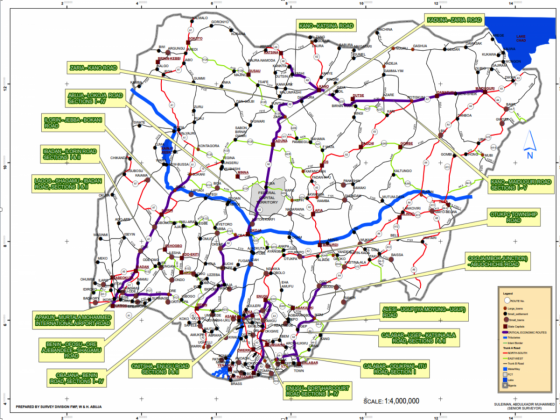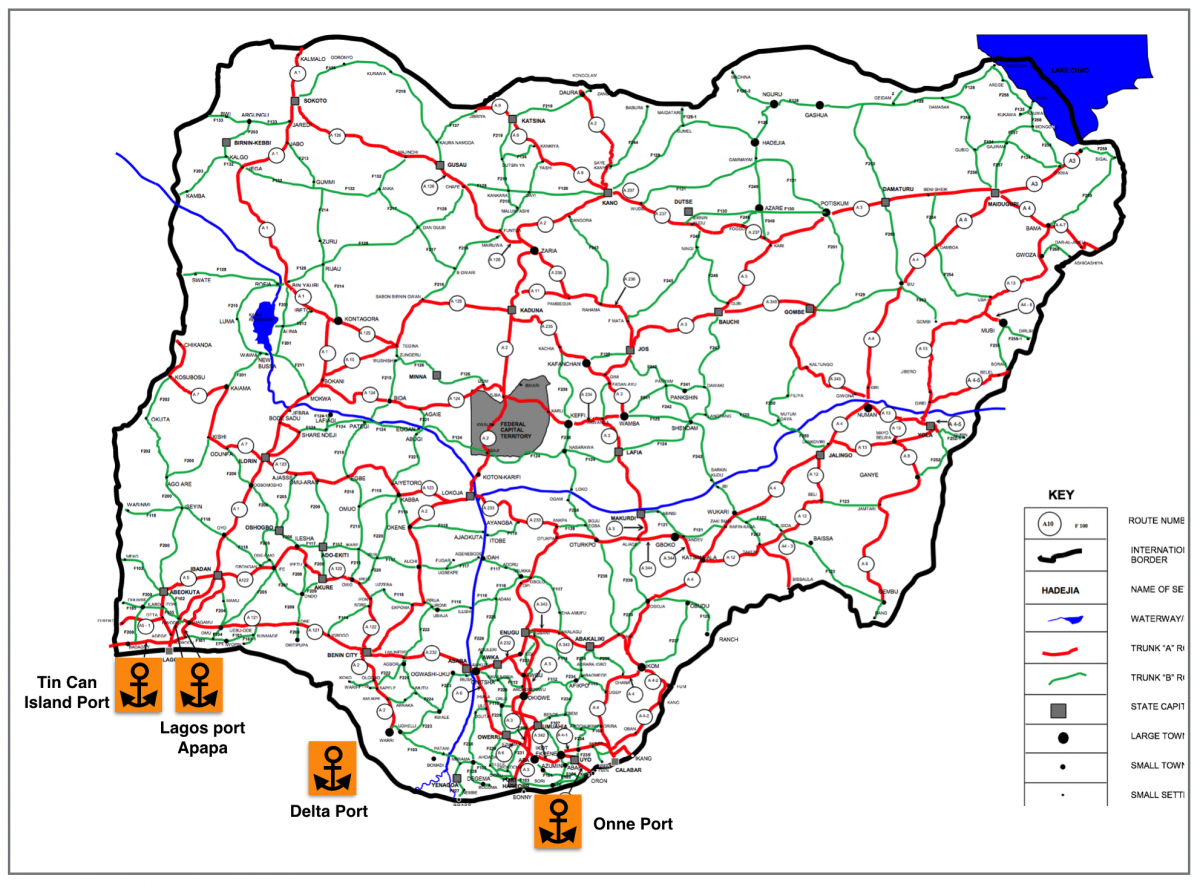Over the last 10 years, Nigeria has moved around erratically on the Logistic Performance Index (LPI) and is currently ranked 90 out of 160 countries in the world. The index takes into consideration six factors – customs, infrastructure, international shipment, logistics competence, tracking & tracing, and competence – that assess the ease with which goods move from producer to consumer in each country.
As multinationals and local companies look to increase their market presence in Nigeria, a top priority for executives is understanding the distribution network within the country. Nigeria could be a very challenging market to navigate so for any business looking to get its product in the hands of the Nigerian consumer, it is important to understand how transportation in Nigeria works – from entry at the ports to the domestic transportation of goods.
Ports:
Let’s start with how goods enter the country – the ports. There are a number of seaports in Nigeria with the two main ports located in Apapa, Lagos – The Lagos Port Complex and Tin Can Island Port Complex. These two ports account for most of the goods that enter Nigeria. There are several other ports including the Rivers port, Calabar port, Delta port and Onne port. The Onne port complex which is located near the city of Port Harcourt services mainly the oil & gas sector and accounts for over 65% of the export cargo through the Nigerian Sea Port. Further developments are being made to ease the flow of goods in and out of the country with the construction of a new port at Lekki. The Lekki port in Lagos will be the first deep-water port and is built as part of the Lagos Free Trade Zone. There are goods that come into the country through the international airports, but the volume of these goods are not comparable to the volume of goods that come through the sea ports.

Roads:
The road network is very important in Nigeria because road transport accounts for over 90% of
freight and passenger services for inland transportation. With such a high percentage of goods transported by road, the importance of the road network to businesses cannot be over-emphasized. The Nigerian road network has an estimated length of 200,000km of which 18% is owned by the federal government, 16% owned by the state government and 66% (mostly earth roads) are owned by the local government. The federal roads constitute only 18% of the road network but carry over 70% of the vehicular traffic.

Although the road network provides a broad national reach, the condition of the roads varies between good, fair and poor across the country – the bad roads are among the major challenges of distribution. There has been a recent push to improve the road networks in Nigeria as the road infrastructure has seen decades of neglect. Only 15% of the total road network has been constructed in the last 55 years. The biggest issue hindering the continuous development of the road network is the abandonment of construction projects by contractors that were not adequately funded to complete projects. A steady flow of investment into the road infrastructure can significantly ease the distribution of goods, leading to a boost in economic development in the country.
Rail & Air:
Although transportation in Nigeria is mainly dependent on the road networks. There is a small percentage of distribution that occurs by rail and air. The railway system offers freight train operations covering 280 stations in 19 out of the 36 states in Nigeria. The rail network is comprised of eight lines with an overall length of more than 3 500km. Although a good rail system can reduce the cost of transporting goods across the country, the current rail network is sub-standard and underutilized. There is also an underutilization of air transport as a mode to move goods within the country. With 22 airports, six of which are international, there is the opportunity to increase the timeliness of delivery with more efficient transportation by air. Both rail and air transportation have been attracting private investments for development that can potentially reduce transportation cost for businesses.
Gateway to West Africa:
The Apapa container port is the largest container terminal in West Africa. With the most established container terminal in the region, Nigeria is a clear point of entry for international businesses that are looking to trade in West Africa. Nigeria will hold on to this position as the gateway to West Africa with the continued development of the Lekki port, which will provide a more robust logistic port and maritime hub for the growing economy in Nigeria and the West African region.

